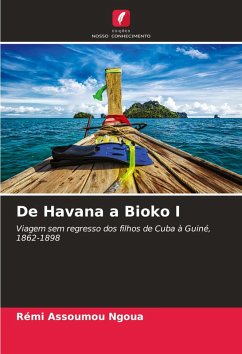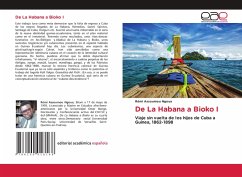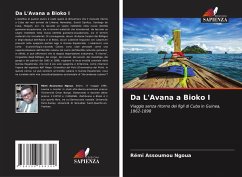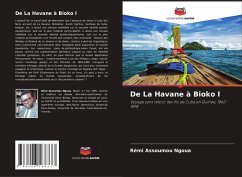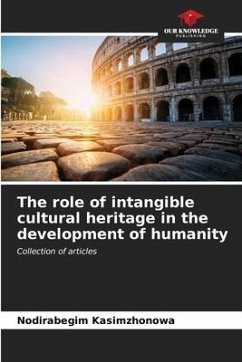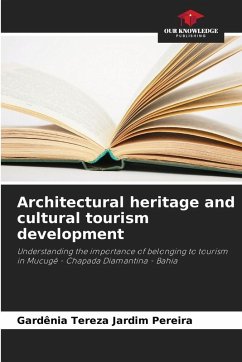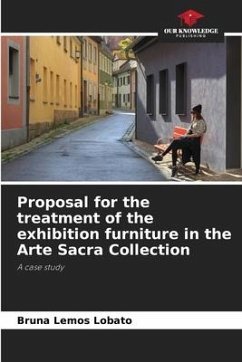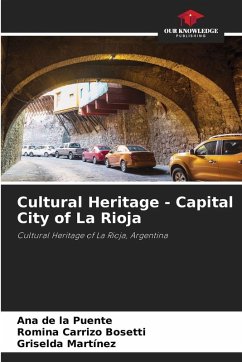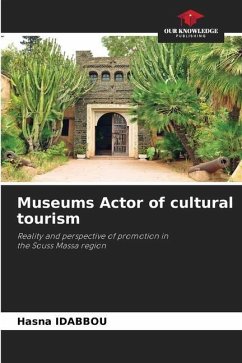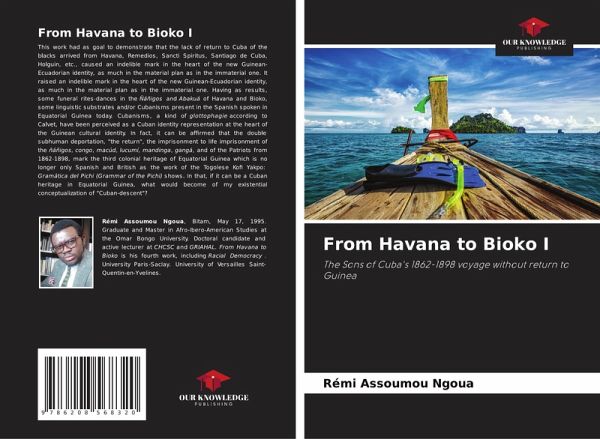
From Havana to Bioko I
The Sons of Cuba's 1862-1898 voyage without return to Guinea
Versandkostenfrei!
Versandfertig in 6-10 Tagen
29,99 €
inkl. MwSt.

PAYBACK Punkte
15 °P sammeln!
This work had as goal to demonstrate that the lack of return to Cuba of the blacks arrived from Havana, Remedios, Sancti Spiritus, Santiago de Cuba, Holguin, etc., caused an indelible mark in the heart of the new Guinean-Ecuadorian identity, as much in the material plan as in the immaterial one. It raised an indelible mark in the heart of the new Guinean-Ecuadorian identity, as much in the material plan as in the immaterial one. Having as results, some funeral rites-dances in the Ñáñigos and Abakuá of Havana and Bioko, some linguistic substrates and/or Cubanisms present in the Spanish spok...
This work had as goal to demonstrate that the lack of return to Cuba of the blacks arrived from Havana, Remedios, Sancti Spiritus, Santiago de Cuba, Holguin, etc., caused an indelible mark in the heart of the new Guinean-Ecuadorian identity, as much in the material plan as in the immaterial one. It raised an indelible mark in the heart of the new Guinean-Ecuadorian identity, as much in the material plan as in the immaterial one. Having as results, some funeral rites-dances in the Ñáñigos and Abakuá of Havana and Bioko, some linguistic substrates and/or Cubanisms present in the Spanish spoken in Equatorial Guinea today. Cubanisms, a kind of glottophagie according to Calvet, have been perceived as a Cuban identity representation at the heart of the Guinean cultural identity. In fact, it can be affirmed that the double subhuman deportation, "the return", the imprisonment to life imprisonment of the ñáñigos, congo, macúd, lucumí, mandinga, gangá, and of the Patriots from 1862-1898, mark the third colonial heritage of Equatorial Guinea which is no longer only Spanish and British as the work of the Togolese Kofi Yakpo: Gramática del Pichi (Grammar of the Pichi) shows. In that, if it can be a Cuban heritage in Equatorial Guinea, what would become of my existential conceptualization of "Cuban-descent"?





